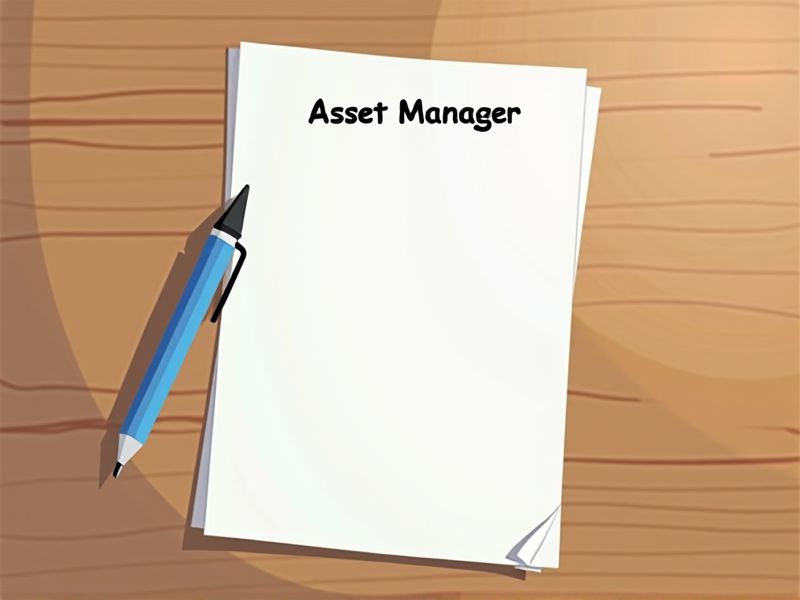
Asset managers handle significant financial resources, requiring robust knowledge and skills to effectively manage investments and risks. Certain certifications ensure that these professionals meet industry standards, demonstrating their expertise and commitment to ethical practices. Being certified also enhances credibility with clients and employers, providing a competitive edge in the financial industry. Consequently, acquiring specific certifications can be crucial for a successful career as an asset manager.
Certified Property Manager (CPM)
Certified Property Managers bring in-depth knowledge and expertise in managing real estate investments, which directly enhances an asset manager's ability to maximize property value and returns. The CPM certification ensures that the manager is well-versed in industry best practices, risk management, and financial acumen, aligning with the asset manager's goals of overall portfolio optimization. Legal and ethical guidelines maintained by CPMs mitigate risks and liabilities, crucial for safeguarding the asset manager's investments. Effective tenant and community relations managed by CPMs improve occupancy rates and property desirability, directly impacting an asset manager's revenue and growth metrics.
Certified Asset Manager (CAM)
Certified Asset Managers possess a formal recognition of their expertise, which enhances credibility and trust with stakeholders. The certification process ensures they have comprehensive knowledge of industry standards, improving decision-making capabilities. Employers often seek Certified Asset Managers due to their proven skill in optimizing asset performance and management. As economic conditions fluctuate, their ability to apply current, standardized practices becomes crucial for maintaining organizational competitiveness.
Chartered Financial Analyst (CFA)
The CFA charter provides a deep understanding of investment management strategies, which equips asset managers with the necessary skills to optimize portfolio performance. Rigorous training in ethical standards found in the CFA curriculum enhances an asset manager's credibility and trustworthiness. Mastery of financial instruments and market analysis gained through the CFA program enables asset managers to make informed investment decisions. Global recognition of the CFA designation offers asset managers networking opportunities and access to industry best practices.
Certified Commercial Investment Member (CCIM)
Obtaining a Certified Commercial Investment Member (CCIM) designation significantly enhances an asset manager's understanding of complex investment scenarios. This credential provides access to a global network of experts, facilitating informed decision-making through shared insights. The CCIM education focuses on financial analysis and market research, ensuring asset managers can maximize property value and returns. Investors and clients often perceive asset managers with a CCIM designation as more credible, leading to increased trust and business opportunities.
Certified Financial Planner (CFP)
A Certified Financial Planner (CFP) provides comprehensive financial planning expertise, ensuring asset managers align investment strategies with clients' long-term goals. The CFP designation equips professionals with in-depth knowledge on taxes, retirement, and estate planning, assisting asset managers in optimizing client portfolios beyond mere asset allocation. With fiduciary obligations, CFPs help asset managers prioritize client interests, building trust and retaining clientele. Regulatory and financial landscapes continually evolve, and a CFP offers asset managers the updated insights needed to navigate these changes effectively.
Project Management Professional (PMP)
The PMP certification equips asset managers with structured methodologies to enhance project efficiency, directly leading to improved asset portfolio performance. Certified project managers demonstrate proficient risk management skills, which are crucial for minimizing potential investment losses. The PMP ensures clear communication channels within asset management teams, fostering cohesive environments that align with strategic financial goals. Market competitiveness increases as asset managers with PMP credentials are perceived as more credible and skilled in executing complex investment projects.
LEED Accredited Professional (LEED AP)
LEED Accredited Professionals bring expertise in sustainable building practices, which is crucial for asset managers aiming to enhance the environmental performance of properties. Their knowledge helps in achieving LEED certification, adding value and competitiveness to assets. Understanding sustainable design and operation reduces operating costs, aligning with financial goals. Their insight into energy efficiency and resource management supports long-term asset profitability and stakeholder satisfaction.
Real Property Administrator (RPA)
An Asset Manager relies on a Real Property Administrator to ensure efficient property operations, directly impacting the overall value and profitability of the asset portfolio. The RPA's expertise in managing leases, maintenance schedules, and tenant relationships mitigates potential disruptions and financial losses. Their ability to manage property budgets and financial reports allows Asset Managers to make informed, data-driven decisions. Effective risk management and compliance with regulations by the RPA reduce liabilities, enhancing the asset's market position.
Facility Management Professional (FMP)
Organizations require Facility Management Professionals (FMP) to optimize asset performance; they bring expertise in maintaining and managing physical assets efficiently. Efficient asset management depends on reducing operational costs, and FMPs provide strategies for achieving these financial goals. Ensuring compliance with safety regulations and extending asset life cycles through preventative maintenance falls within their expertise. They enhance sustainability efforts, leading to reduced environmental impact and long-term cost savings.
RICS Assessment of Professional Competence (APC) Certification
The RICS Assessment of Professional Competence (APC) certification validates an asset manager's expertise, ensuring they meet industry-recognized standards in property management. Having this certification increases credibility with clients and stakeholders, thereby enhancing trust in professional judgment and decision-making. The structured learning and assessment process of the APC equips asset managers with the latest knowledge and skills, improving strategic management of assets. Additionally, possessing the RICS APC can provide a competitive edge in the job market, as employers often prefer candidates with recognized qualifications.
Summary
You will likely enhance your credibility by obtaining certifications as an asset manager. Certification often signifies a deeper understanding of investment strategies and asset management principles. This could lead to increased trust from clients and potential employers, expanding your career opportunities. Enhanced knowledge and credentials may also facilitate better decision-making in asset allocation and risk management.
